Immun System
All information about "Immun System" and the related magazine articles can be found here.
Our articles are written clearly and link to scientific studies where relevant. This is how we meet our own standards: we regularly deliver new, high-quality content for you—free of charge, no sign-up required, with the highest possible benefit to you.

This is how versatile the micronutrient choline is in the body
The vitaminoid is a real all-rounder & is used in many places in the body as a cell building block. A deficiency has major health implications.

Omega 3 for your skin, heart and brain
Omega-3 fatty acids are found in some foods, including fish. If you have an unbalanced or vegetarian diet, omega-3 capsules are a sensible alternative to ensure you get enough of the fatty acid. Find out more about the many benefits of an optimal omega-3 intake and how a deficiency can become apparent.
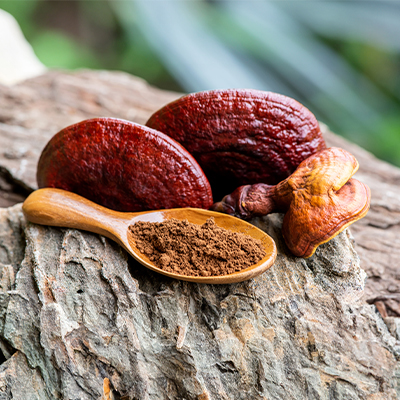
Reishi - a medicinal mushroom with thousands of years of tradition
What makes Reishi so special? Reishi has a long history in Traditional Chinese Medicine (TCM) and is now gaining popularity worldwide as a medicinal mushroom with positive health effects. Find out more about its many uses, the scientific research and the potential benefits attributed to it.

How L-carnitine works in energy metabolism
Carnitine is mainly found in animal foods and plays an important role in energy metabolism. Find out more now.

These are the causes of hair loss
There are many different types of hair loss in men and women - and there are different ways to help your hair grow back. Find out more now.
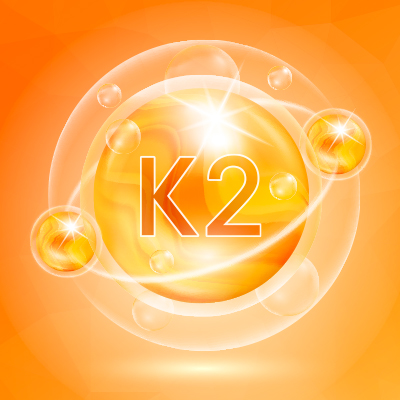
Vitamin K2 for bones and cardiovascular health
A vitamin K2 deficiency is associated with osteoporosis and arteriosclerosis. Here you can find out more about this important vitamin, its function in calcium metabolism and what you should definitely bear in mind when taking a supplement.
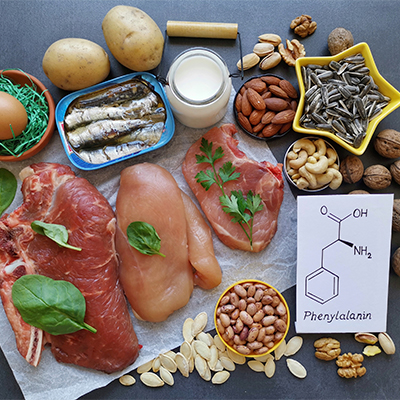
The body needs phenylalanine for this
The amino acid phenylalanine is required for the synthesis of dopamine and serotonin and is also an important building block for proteins. Find out more now.
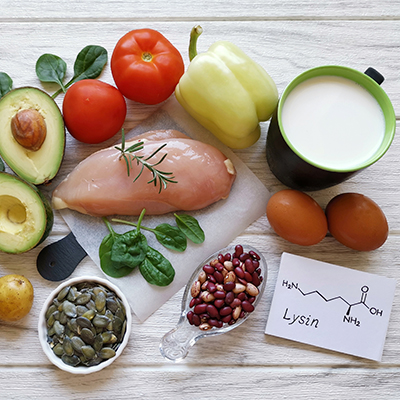
The essential amino acid lysine
From the metabolism to the immune system to the skin: there are many processes in the body in which lysine is involved. A deficiency of the essential amino acid can therefore disrupt these processes. The good news is that lysine is found in many foods. Find out more in this articel!

Your nutritional timetable for pregnancy
The right diet is particularly important during pregnancy to ensure that the expectant mother and, above all, the baby are adequately supplied with all the important nutrients. Because nutrition can influence the baby's development! Valuable answers and tips can be found here.
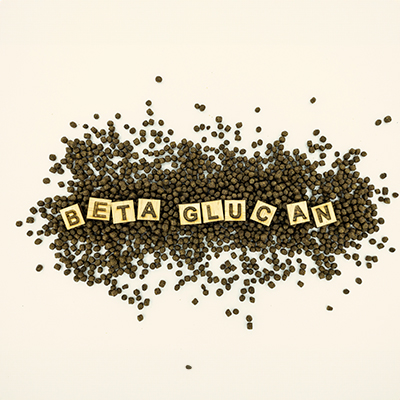
The importance of beta-glucan for the body
Good for the gut and the immune system? Fibre is said to have a number of health-promoting properties and effects. We have summarised these for you in this article.
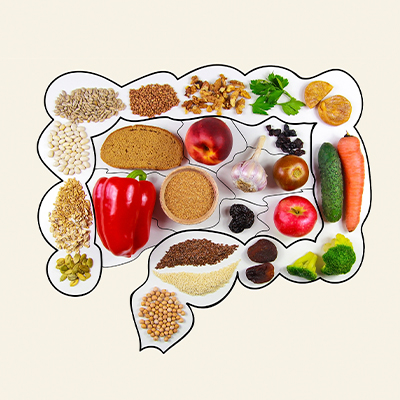
Propionic acid - why we need vegetables for this
Everyone has heard that fibre is important for our health, but do you know why? Did you know that vegetables and pulses form propionic acid in our gut? But what is it good for? Find out more here!

Selenium - effect, deficiency and overdose!
The trace element selenium, which is essential for us, plays a supporting role throughout the body - whether in numerous metabolic processes or a healthy thyroid gland. However, the low content of selenium in our food is often not enough to ensure an adequate supply. What exciting findings have scientists made with it in research and how is it linked to Hashimoto's? Selenium deficiency or overdose - how bad is it in each case? Read more about it here!

Guarana - a good coffee alternative?
Is guarana a real alternative to your morning cup of coffee? The extract from the superfruit from the tropics is becoming increasingly popular as an additive for drinks and as a supplement.

All you need to know about caffeine tablets
Caffeine tablets are a convenient and fast-acting way to get the energy boost of caffeine without drinking a cup of coffee or other caffeinated beverages. Find out more now.

Brown algae - nutrients and vitamins from the sea
Inconspicuous and widely underestimated: brown algae are not only tasty as food, but also a good way to support your body as a dietary supplement. Find out everything you need to know about the benefits of these algae here.

Turmeric - more than just a spice
Turmeric is still very popular today. What is the truth behind the phenomenal effects attributed to this yellow tuber?

The underrated power of folate: Why this vitamin is so important

B6 - a vitamin with many tasks!
The water-soluble vitamin cannot be stored by the body, but is extremely important for us! It is essential for metabolic processes, nerve transmission, hormone production, the immune system and also for regulating homocysteine levels! But despite a balanced diet, are you at risk of vitamin B6 deficiency? Maybe it's due to the contraceptive pill! Read more about this here!

Why is methylsulfonylmethane (MSM) so important to us?
An adequate supply of sulphur is essential for the proper functioning of enzymes and amino acids. Here you can read about the benefits of MSM for our skin and hair, as well as for osteoarthritis, allergies and sports injuries.

Getting all the vitamin B12 you need in a vegan diet
Those on a vegan or vegetarian diet should pay more attention to whether they have an adequate supply of vitamin B12. Find out more now

Get rid of bladder infections!
Almost every woman has had a urinary tract infection, and some suffer from it regularly. Find out why we should take this infection seriously, how it develops and what types of treatment are available!

About vitamin B12 deficiency and pain
We all know that B vitamins are very important for our health. But many people don't realise how serious a vitamin B12 deficiency can be! Not just for vegetarians, vegans, pregnant or breastfeeding women, diabetics or even alcohol drinkers!

L-threonine - an essential amino acid with important functions
Amino acids are an important building block for our health. Which ones can the body produce and which ones need to be ingested in order to fulfil all functions? What are the risks for vegans and what are the dangers of a deficiency? Our report answers the most important questions!

Why NADH is important for the body
They are the basic building blocks of the body: cells. Their job is to absorb nutrients and use their energy for metabolism. An important factor in this process is NADH.
Strengthen your immune system: Our body's own protective shield needs support
Our immune system is a complex network that protects us from pathogens every day. It is our body's own protective shield against viruses, bacteria and other harmful influences. In the following, we will take a closer look at how our immune system works, how we can strengthen it and what role our diet, sufficient exercise and our general lifestyle play.
What are the four components of our immune system?
Our immune system has four components that work together to ensure a comprehensive defense against pathogens.
Component 1: Physical and chemical barriers
Physical barriers form the first line of defense against intruders. Physical barriers include:
- The skin is the largest organ in the body, forming a waterproof barrier that keeps pathogens out.
- Mucous membranes that line the respiratory, digestive and urogenital tracts.
- Mechanical barriers such as cilia in the respiratory tract that remove germs.
- Chemical barriers such as gastric acid, enzymes in bodily fluids (e.g. saliva, tears) and sweat, which have an antibacterial effect.
Component 2: Cellular Defense
The cellular defense is a central component of our immune system and consists of various types of white blood cells, also called leukocytes. These cells circulate in the blood and can penetrate into tissue to fight pathogens. The most important players in the cellular defense include the phagocytes, which patrol the body and recognize and destroy intruders. In addition, T cells and other specialized immune cells play a crucial role in acquired immunity. These cells can identify specific pathogens and trigger a targeted immune response. Together, these different cell types form an effective defense system that protects our body from a variety of threats.
Component 3: Humoral Defense
The humoral defense is an important part of the immune system, which consists of various molecules that circulate in the blood and other body fluids. Antibodies that are specifically directed against certain pathogens play a central role in this. These proteins recognize and bind to intruders in order to mark them for the immune system or to render them harmless. Complement proteins, which support the immune defense in a variety of ways, work in conjunction with them. For example, they can directly destroy pathogens or activate other immune cells.
In addition, there are other proteins and chemical substances that contribute to the immune defense by regulating inflammatory reactions or promoting communication between different parts of the immune system.
Component 4: Lymphatic system
The lymphatic system plays a central role in coordinating our body's immune response. It consists of a network of organs and tissues distributed throughout the body. The most important lymph organs include the spleen, lymph nodes, tonsils and Peyer's patches in the small intestine. These organs act as filter stations that trap and neutralize microorganisms. At the same time, they serve as collection points for mature immune cells, where they are activated and can trigger specific immune responses.
The thymus gland, which is particularly active during childhood, plays a particularly important role. It is instrumental in the development and maturation of T cells, which play a key role in the cell-mediated immune response. Through the interaction of these various components, the lymphatic system enables an effective and coordinated defense against pathogens and thus contributes significantly to maintaining our health.
The two main categories of the immune system
Our immune system consists of two main categories, the innate and the acquired immune system:
Innate (non-specific) immune system
The innate immune system is present from birth and forms the first line of defense against pathogens. It reacts quickly and non-specifically to intruders, which means that it treats all foreign substances similarly.
Key features of the innate immune system:
- It is ready to use and can respond quickly to threats.
- It recognizes a limited number of antigens, but these occur on many different pathogens.
- It includes physical barriers such as skin and mucous membranes, as well as chemical barriers such as stomach acid.
- Important cell types include natural killer cells, monocytes (which develop into macrophages), neutrophils, eosinophils, and basophils.
- It also includes the complement system, a series of proteins that can trigger a cascade of reactions.
- Cytokines play an important role as messengers in the immune system.
Acquired (adaptive) immune system
The acquired immune system develops over the course of a lifetime and specifically adapts to new threats. It reacts more slowly but more precisely, and has a memory for previous infections.
Key features of the acquired immune system:
- It takes time to react because it must first recognize the specific pathogen or virus.
- It is highly specific and targets certain pathogens.
- The main players are T-lymphocytes (T-cells) and B-lymphocytes (B-cells).
- T cells have various functions, including activating other immune cells, destroying infected cells and forming memory cells.
- B cells produce antibodies that are specifically tailored to certain pathogens.
- It can remember pathogens, which leads to a faster and more effective immune response upon renewed contact.
Which immune system is stronger?
There is no clear answer to the question of whether the innate or the adaptive immune system is stronger. Both systems have their strengths, work closely together and complement each other. While the innate system provides the first rapid response, the adaptive system ensures targeted and long-lasting immunity.
Which blood value corresponds to the immune system?
There is no single blood value that represents the entire immune system. However, various values can provide clues as to how the immune system is functioning:
- Leukocytes: The total number of white blood cells can provide information about general immune activity.
- Lymphocytes: A subgroup of white blood cells that also includes T cells.
- C-reactive protein (CRP): An inflammation marker that increases with infection.
What factors influence our immune system?
There are various factors that have a major influence on the immune system [1].
Strengthen the immune system with the right nutrition
A balanced diet, for example, is crucial for a strong immune system. Certain nutrients play a particularly important role here:
Vitamin C: This antioxidant is known for its immune-boosting effect. It supports the function of white blood cells and protects them from free radicals. Good sources include citrus fruits, bell peppers and broccoli.
Vitamin D: This “sunshine vitamin” activates T cells and regulates the immune system. During the winter months, when sunlight is less available, a vitamin D supplement may be useful to prevent vitamin D deficiency.
Vitamin A: It supports the production and function of white blood cells. Beta-carotene, the precursor of vitamin A, is found in orange and dark green vegetables.
Zinc: This trace element is involved in numerous immune reactions and supports the normal functioning of the immune system.
Omega-3 fatty acids: These have anti-inflammatory properties and can reduce the risk of cardiovascular disease.
Phytonutrients: These compounds, which are found in fruit and vegetables, have antioxidant and anti-inflammatory effects.
A tip for an immune-boosting diet: eat plenty of vitamin-rich foods such as fresh fruit and vegetables. A colorful selection of foods ensures that you consume a wide range of nutrients. During the cold season, a hot lemon can provide vitamin C as a home remedy in addition to a healthy diet and support your immune system.
Movement for a strong defense
Regular exercise, along with a healthy diet, is another key factor in maintaining a strong immune system and can help prevent illness. Moderate physical activity can:
- Improve the circulation of immune cells
- Reduce stress
- Increase the production of antibodies
Try to be active for at least 30 minutes a day. This could be going for a walk in the fresh air, cycling or swimming. Be careful not to overdo it, as excessive exercise can temporarily weaken the immune system.
Sleep and stress management
Getting enough sleep is essential for a well-functioning immune system. While we sleep, our body produces important immune cells and antibodies. You should get at least 7-9 hours of sleep per night.
Chronic stress can also impair the immune system [2]. Stress management techniques such as meditation, yoga or deep breathing can help to reduce stress and support the immune system.
What role does the gut play in the immune system?
About 70-80% of our immune cells are located in the intestines. It is therefore no wonder that a healthy intestinal flora is crucial for a strong immune system. A high-fiber diet with fermented foods such as yogurt or sauerkraut can promote intestinal health and thus strengthen the body's defenses.
Seasonal challenges for the immune system
In fall and winter, our immune system is particularly challenged. Flu-like infections and colds are more common during this time. But with the following tips, you can support your immune system:
- Increase your vitamin C intake by eating citrus fruits and other foods rich in vitamin C.
- Make sure you get enough sleep and reduce stress.
- Get regular exercise in the fresh air, even when it's cold.
- Wash your hands frequently to reduce the transmission of viruses.
Dietary supplements: useful or unnecessary?
Many people take supplements to boost their immune system. While a balanced diet is usually sufficient to provide the body with all the necessary nutrients, supplements can be useful in certain situations:
- In the event of a proven nutrient deficiency
- In stressful situations or under increased strain
- For certain risk groups (e.g. older people, pregnant women)
Lifestyle factors that can weaken the immune system
Certain habits and behaviors can affect our immune system:
Smoking: Cigarette consumption impairs the function of immune cells and makes smokers more susceptible to infections, especially respiratory infections [3].
Excessive alcohol consumption: Alcohol confuses white blood cells, especially macrophages, causing them to overlook pathogens more easily.
Unhealthy diet high in sugar and processed foods: Such a diet can lead to nutrient deficiencies that are important for a well-functioning immune system.
Chronic sleep deprivation: Regular sleep deprivation weakens the body's defenses and increases susceptibility to infections.
Prolonged stress: Long-term stress leads to the release of hormones that suppress the immune system and increase susceptibility to disease.
Lack of exercise: Regular physical activity is important for a strong immune system, while a lack of exercise can weaken the body's defenses.
By taking care to minimize or avoid these factors, you can make a significant contribution to strengthening your immune system and improving your overall health.
Are there natural immune boosters?
There are a number of natural substances known for their immune-boosting properties:
- Garlic: Contains allicin, which has antimicrobial properties.
- Ginger: Has anti-inflammatory and antioxidant effects.
- Green tea: Rich in antioxidants that support the immune system.
- Propolis: A bee product with antimicrobial properties.
- Echinacea: A plant that can stimulate the production of white blood cells.
But be aware: the natural immune boosters mentioned can help to support the immune system, but they are no substitute for a healthy lifestyle.
The importance of hygiene for the immune system
Good hygiene is an important factor for a healthy immune system. Washing your hands regularly, especially before eating and after using the toilet, can significantly reduce the spread of pathogens. Regular cleaning of frequently touched surfaces such as door handles, light switches and cell phones also helps to minimize the germ load. However, hygiene should not be taken to extremes, as a certain amount of contact with microorganisms is important for developing and maintaining a strong immune system. The so-called hygiene hypothesis states that an environment that is too sterile, especially during childhood, can understimulate the immune system and lead to allergies and autoimmune diseases. It is therefore important to practice a balanced hygiene that offers protection without depriving the immune system of its natural training opportunities.
Vaccinations: An important tool for the immune system
Vaccinations are an essential part of immune health. They train the immune system to recognize and fight specific pathogens. Regular vaccinations, as recommended by your doctor, can help prevent serious infections and support overall immune function.
Vaccinations work by presenting the body with a harmless version or part of a pathogen, which teaches the immune system to recognize it and produce antibodies. In the event of subsequent contact with the real pathogen, the immune system can then respond quickly and effectively. In addition to individual protection, vaccinations also contribute to community protection by reducing the spread of infectious diseases in the population. It is important to keep up to date with recommended vaccinations and to discuss with a doctor which vaccinations are appropriate for your individual situation.
What age-specific immune challenges are there?
The immune system changes throughout our lives, which is why it always needs to be supported in a specific way:
- Children: They have an immune system that is still developing and are more susceptible to infections.
- Adults: Their immune system is fully developed, but it can be affected by lifestyle factors.
- Seniors: Their immune system becomes less effective (immunosenescence), which can lead to an increased susceptibility to infections.
What do free radicals have to do with the immune system?
Free radicals have a complex relationship with the immune system [4]:
Production by the immune system: The immune system produces free radicals in a targeted manner to fight invading pathogens. Immune cells such as macrophages and neutrophils generate reactive oxygen species as part of their defense strategy against viruses and bacteria.
Signaling effect: Free radicals serve as signaling molecules that can activate the immune system. They signal to the body that a process such as inflammation is taking place, which must be responded to.
Support for the immune response: During the immune response, free radicals support the immune cells in fighting bacteria and viruses. They play an important role in the cell's signalling processes and in apoptosis (programmed cell death).
Potential damage: However, an excess of free radicals can also damage the immune system itself. Oxidative stress caused by too many free radicals can impair immune cells and lead to chronic inflammation.
A balance between free radicals and antioxidants is important for a healthy immune system. Antioxidants neutralize excess free radicals, preventing damage to the immune system. Free radicals can play both a supportive and a potentially damaging role in the immune system. A balanced ratio is crucial for optimal immune function.
Chronic illnesses and the immune system
Chronic diseases can affect the immune system in a variety of ways. In Diabetes, persistently elevated blood sugar levels can impair the ability of immune cells to fight pathogens, making diabetics more susceptible to infections. Chronic kidney disease leads to the accumulation of substances in the body that can weaken the immune system, while liver disease impairs the production of important immune system components. In heart disease, decreased cardiac output can impede the transportation of immune cells in the body, and inflammatory bowel disease can disrupt the intestinal barrier and immune function in the digestive tract.
In autoimmune diseases, the immune system mistakenly attacks the body's own structures. It produces autoantibodies that attack the body's own cells, leading to chronic inflammation that can damage organs and tissues. Examples include type 1 diabetes [5], multiple sclerosis, rheumatoid arthritis and lupus erythematosus.
Many treatments for chronic illnesses also affect the immune system. Immunosuppressants, which are used for autoimmune diseases and after organ transplants, suppress the immune response, but can also reduce the general ability to defend against infections. Steroids, which are used for lung diseases such as asthma, have a local anti-inflammatory effect but can also affect the immune system.
A holistic approach to a strong immune system
A strong immune system is the key to a healthy life. It is based on a complex interplay of various factors, such as a balanced diet, sufficient exercise, good hygiene and enough sleep.
Of course, a healthy immune system does not guarantee that you will never get sick, but it helps your body to fight diseases better and to recover faster.
Ultimately, taking care of your immune system is an investment in your long-term health and well-being. You can support your immune system system with the right strategies and a conscious lifestyle.
Sources
[1] https://pubmed.ncbi.nlm.nih.gov/27916977/
[2] https://pubmed.ncbi.nlm.nih.gov/20302192/
[3] https://pubmed.ncbi.nlm.nih.gov/27902485/
[4] https://pubmed.ncbi.nlm.nih.gov/10807157/
[5] https://pubmed.ncbi.nlm.nih.gov/31657690/
